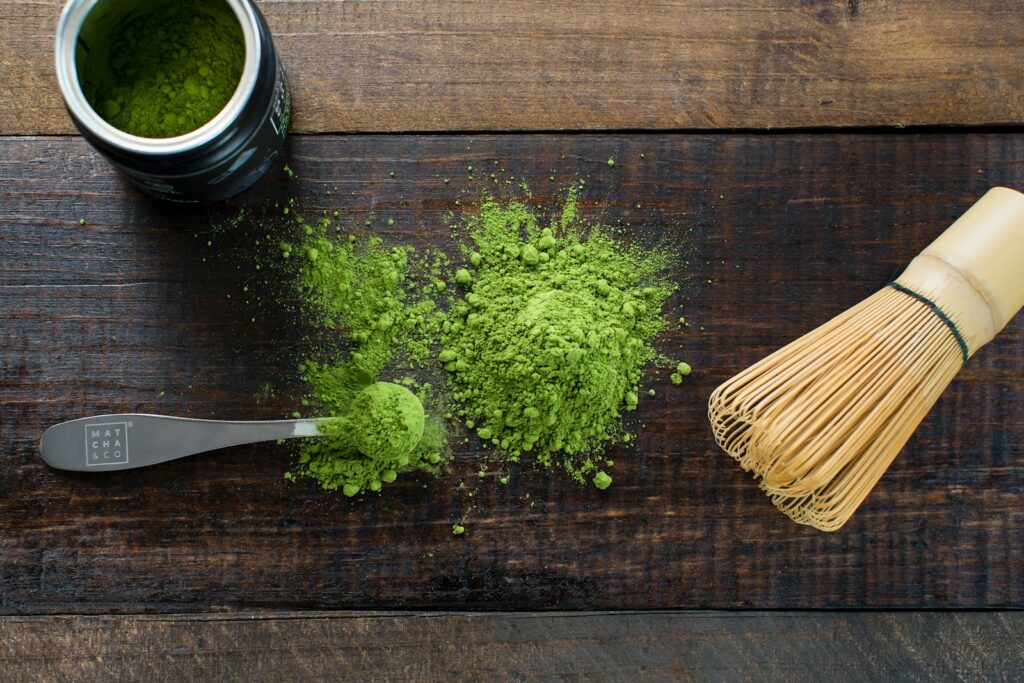In the vibrant world of energizing drinks, caffeine takes center stage, playing an integral role in our daily rituals. Its invigorating effects are widely sought after, but just how much caffeine do common beverages like matcha and coffee contain? This article offers a detailed analysis of the caffeine content in these popular drinks, providing insights on benefits, serving sizes, and differences to help you make better choices for your lifestyle.
Digging Deep into Matcha: Unfolding its Caffeine Content
Matcha is a type of green tea that originates from Japan, where it’s revered for its health benefits. Unlike most teas, matcha comes in powder form, creating a richer, more concentrated drink. A typical serving of matcha powder contains around 35-70mg of caffeine. This range can vary depending on the quality of the tea, brewing methods, and the length of steeping time used.
The caffeine in matcha does not release all at once due to the l-theanine present, an amino acid known to regulate anxiety levels and promote alertness. Therefore, individuals experience a slower absorption rate, causing a prolonged, smoother burst of energy compared to other caffeinated drinks.
Coffee Buzz: Measuring its Caffeine Kick
Coffee is a long-standing champion when it comes to giving people their much-needed morning jolt. Generally, an eight-ounce cup of standard brewed coffee consists of about 95-200 mg of caffeine – significantly more than a serving of matcha.
This wide range of caffeine content mostly depends on factors like the origin of the coffee beans, their roast level, and preparation method. Nonetheless, the effects of caffeine in coffee tend to spike quickly, providing an immediate energy boost but often leading to inevitable crashes later on.
Health Implications of Caffeine: Benefits and Cautions
Despite the difference in caffeine levels between matcha and coffee, both drinks offer numerous health benefits. Matcha is packed with antioxidants, known for reducing cell damage and preventing chronic diseases. Coffee, on the other hand, can improve physical performance, fire up your metabolism, and may even protect against certain types of cancer.
- Caffeine in moderate doses stimulates mental and physical performance.
- Coffee consumption may lower risks of Parkinson’s disease, type 2 diabetes, and liver disease.
- Matcha boosts brain function, helps fight bacterial, fungal, and viral infections, and offers heart health benefits.
However, it’s not all sunshine when it comes to caffeine consumption. Excessive intake can cause restlessness, stomach discomfort, tremors, and disrupt your sleep cycle. Therefore, thoughtful consideration is key when incorporating these caffeinated beverages into your routine. Listen to your body and respect its thresholds, recalling the variation in serving sizes across different drinks.
Individual Preferences: Matcha vs Coffee
The debate between matcha and coffee isn’t merely about caffeine content. Taste, preparation time, and overall feel play a part in this equation too. Coffee drinkers may savor their beverage’s robust flavor and quick preparation. Meanwhile, tea enthusiasts might find solace in the ceremonious process of preparing matcha and appreciate its subtly sweet and vegetal taste. It really boils down to matching your choice with your lifestyle.
A Tale of Two Drinks: Deciphering What Works Best for You
In essence, navigating the labyrinth of caffeinated drinks requires individual analysis. The key is to consider how your body processes caffeine and understands its effects on your system. If you’re seeking an instant perk-me-up effect, coffee is your go-to drink. But if you desire a slow release of energy to maintain focus over extended periods, you will likely benefit from matcha.
With various variables at play, including benefits, serving sizes, and caffeine content, your perfect choice between matcha and coffee depends on your personal preferences and health goals.

